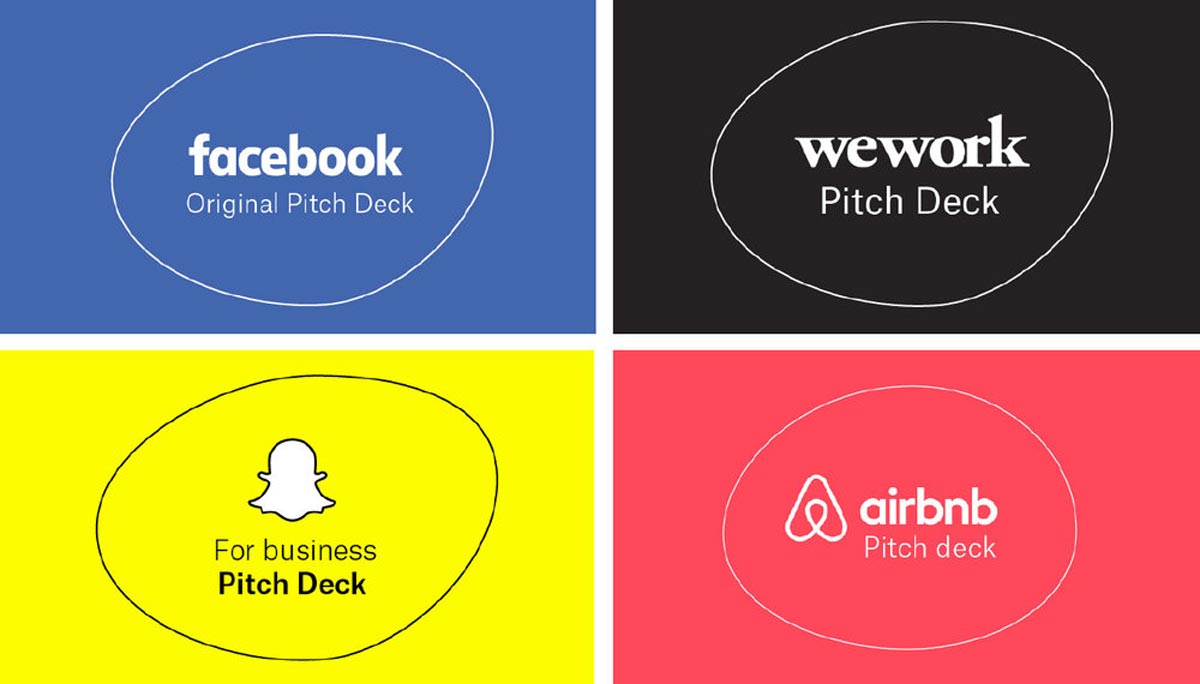A few months ago, we made a video on the responsibilities of a CEO, and I realized now that I never really covered how I manage to get everything done.
To me, the role of a CEO is mainly enabling your team, enabling them to fulfill and excel at their jobs. However, the company's situation often requires you to roll up your sleeves and lead projects yourself.
As our operation has grown, my time has become more and more scarce and more and more precious. I've come to a point where I choose what projects will truly need my involvement, and I delegate others and do my best to stay out of them.
I am going to go over:
- what a typical day looks like for me
- the evolution of my tasks as the company has grown
- the mistakes I've made, and
- the tactics I use to make myself more efficient
The CEO daily Routine
This is how a daily schedule looks like:
- I wake up at 5am, almost every weekday.
- 6 to 7:30 am - I exercise, usually a Tennis match.
- I start working around 8:30 am, aiming to finish by 6:30 pm or so.
- I block out 2 hours for lunch, which I don't spend in full, but give me the flexibility to eat earlier or late, hang out with my family, or work as a buffer time without meetings to catch up with work.
- I try my best to be free between 6:30 pm and 10:30 pm to hang out with family.
- If I'm done with work, I'll watch a movie or play some video games between 10:30 pm and midnight. Otherwise, I use that time to wrap up the task of the day. It's a great time to work with zero distractions.
- In bed by midnight. Rinse and repeat.
- Weekends are most sacred to me. I do my best to get all pending items out on Friday, and I've been successful at it for the past few months.
Now, the biggest struggle for a CEO of a company my stage is calls and meetings. Most CEOs spend time in discussions with the team or with potential partners, but in my case, that time also includes calls with our customers.
Some of our Slidebean plans include consulting calls with me, which our users love. These calls give a great insight into the product and our customers' needs- but of course, but take a significant toll on my calendar.
I control that workload by only enabling calls to be booked certain days per week and keep at least two workdays, where I only take a meeting if it's genuinely urgent.
I'm strict about the meaning of 'urgent' because otherwise, you can't get things done. For most CEO tasks for a company, our stage should be having a significant impact on revenue or productivity.
By the way, I never, ever, negotiate times for a meeting. That's why we have Calendly.
Alright, now let's talk about the evolution of tasks.
Founding Stage: founders and first employees
Tasks
In this stage of the business lifecycle, you will do a bit of everything. You'll get a crash course on accounting and bookkeeping, legal. You'll learn to setup domains and emails and redirect your domains to the different landing pages you are testing.
You need to have the capacity to do this and to do it fast. Time is precious in this stage because you probably will be pre-product, and therefore pre-revenue. Every day you spend in a day of runway spent.
More importantly, it's during this stage that you will learn the trade of your company. You'll learn who your customers are and why they are complaining because you'll probably be handling those support emails yourself.
You'll learn sales and marketing as you pitch your business and start getting the word out there.
That's why the famous hacker/hustler/hipster combination is vital. By the way, check our our video on how to find a Co-founder. A hacker is a product person, and they own that branch. A hipster leads the design, defines an identity for the business and the brand, and finally, a hustler hustles. Investors, customers, evangelists, beta testers, press! Your job is to push your team to move, define the goals and milestones, and get everyone else excited about your product.

Mistakes
The biggest mistake I made during this time was probably working too hard. I often had 14-hour workdays, which a younger Caya (in his twenties) could manage but not sustain for long.
This is unsustainable; DO NOT DO IT. I got into some unnecessary arguments with my co-founders because they were 'only' putting up 10 hours per day.
What they knew, and I didn't, was that after an 80-hour week, your brain just doesn't function properly anymore. You need rest, and family time, and beer, and... sandwiches to keep ideas flowing. DO NOT underestimate the value of leisure time.
Tips
Find out the most urgent need of the business and ensure that the team that has control over that task has a clear runway.
Product was the most urgent thing in our earliest stages: getting a viable product into the market; or completing that urgent feature request.
My job then was making sure that we brought that out as fast as humanly possible. How? By offloading tasks from the key person in charge of that task.
Learn to delegate. Learn to trust your co-founders and to disconnect yourself from tasks.
Growth Stage
Tasks
You'll still be doing a bit of everything, but you'll soon find out that you can group specific tasks and put a name on them.
You can group all the support and help requests and put them under a 'Customer Support' person umbrella. Or you can group your accounting and bookkeeping tasks and assign them to an office manager.
Those will be your first hires, the tasks that you can group and offload. The great thing about this is, you know how to do all these tasks. You know how long it takes, and therefore, you know how long they should be taking to complete them.
In my case, the task that I could not delegate was the role of CMO.
We could afford some junior marketing people or junior paid media people, but not a CMO. We couldn't afford one, so I had to become one. That's the versatility you need as a CEO.
As the team scales, you'll also need to create your first mental Organizational chart. Who reports to who? How do you assign teams for efficiency? Which of your hires have the potential to become managers, and which are better off on dedicated positions?
Mistakes
We also have a video about common Startups Mistakes. Go check that out.
I should have used this time to put more structure into things.
Your schedule will only get busier. You'll soon start losing track of your business development conversations, so begin logging them and make it a habit.
Use Zapier to automate repetitive tasks. Become an email expert: whether it's Inbox zero or some other method, pick your email tool and stick with it, own it, and make it boost your productivity.
Again, I failed to do this early on, which probably cost me hundreds of productivity hours until I finally carved out some time to solve it.
One of those was keeping track of your company SaaS tools. If you're not careful, you'll soon find duplicates or orphaned tools. I used to keep a spreadsheet which I updated manually, which was, of course, a waste of my time. I use Monthly now and tell everyone to auto-forward any invoice. Monthly just keeps a dashboard that the accounting team can access later.

Tips
Data! At this point, you will have more data than you can analyze regularly, and that's probably OK. Make sure that you are keeping quality logs of customer activity.
You don't need to look at them every week, but when a question comes up, like the age group with the most activity, or 'how was retention affected after we released X feature', you'll need to be able to go back and see it.
Maturity
Mandatory disclaimer, we are not a mature company. What I mean by 'maturity' is we have reached a point in the business where we are profitable, and we are not hiring aggressively. The CEO's tasks move from keeping up with the scaling of the company to running it and making more strategic decisions.
At this stage, you just don't have time to roll up your sleeves for almost any project. Your role is defining a project, handpicking the team that can bring it to a conclusion, meeting with them to get everyone on the same page, and getting out.
Your time at this stage is so tight that your involvement in a project might actually cause delays: if your team is waiting for your approval to move forward, things will move slower. You must empower your managers and your trusted team to make decisions of their own, to make mistakes even, as long as the project moves forward.
Just to clarify this definition of 'project'- these are some of the projects that I have 'started' recently:
- Building a new email onboarding and drip campaign system. I assigned this to the customer success and the data analyst teams.
- Re-releasing our Company Forensics episodes as a podcast.
- Re-thinking our brand presence in social media (which is far from great at the moment). This requires assembling a new social media team.
- Figuring out a way to get our content on TikTok.
- Hiring a new operations manager for our Costa Rica office, who can take over more of my administrative tasks.
Even with hires, for example, as involved as I would like to be in the process, I only have time to meet with the top 3 candidates. I've learned to trust my team's judgment to do everything else.
This can be very frustrating at times, by the way. Sometimes you WANT to get your hands dirty with a project. You want to do some designs or figure out some UX mockups, but you just can't. You have to resist the urge and trust your team to do it.
The only project where I've been able to dedicate some extra time is Monthly. I am so excited about it. One of the tasks I've been doing is getting in conversations with other CEOs about whether our 'problem statement' is correct. And it is (we have a video with me pitching that business, by the way)
Abandoned SaaS tools that nobody uses. Duplicate platforms. Manual spreadsheets to keep track of expenses. Mismatch in the way tools are classified on the books. It seems every company I talk to is struggling with this, and we believe Monthly is going to solve all that.
We are offering early access to our Youtube viewers. You can sign up for free at monthlyapp.com/youtube. As tight as my schedule is, I will read your tweets about it, so please take a look and let me know what you think.
A few months ago, we made a video on the responsibilities of a CEO, and I realized now that I never really covered how I manage to get everything done.
To me, the role of a CEO is mainly enabling your team, enabling them to fulfill and excel at their jobs. However, the company's situation often requires you to roll up your sleeves and lead projects yourself.
As our operation has grown, my time has become more and more scarce and more and more precious. I've come to a point where I choose what projects will truly need my involvement, and I delegate others and do my best to stay out of them.
I am going to go over:
- what a typical day looks like for me
- the evolution of my tasks as the company has grown
- the mistakes I've made, and
- the tactics I use to make myself more efficient
The CEO daily Routine
This is how a daily schedule looks like:
- I wake up at 5am, almost every weekday.
- 6 to 7:30 am - I exercise, usually a Tennis match.
- I start working around 8:30 am, aiming to finish by 6:30 pm or so.
- I block out 2 hours for lunch, which I don't spend in full, but give me the flexibility to eat earlier or late, hang out with my family, or work as a buffer time without meetings to catch up with work.
- I try my best to be free between 6:30 pm and 10:30 pm to hang out with family.
- If I'm done with work, I'll watch a movie or play some video games between 10:30 pm and midnight. Otherwise, I use that time to wrap up the task of the day. It's a great time to work with zero distractions.
- In bed by midnight. Rinse and repeat.
- Weekends are most sacred to me. I do my best to get all pending items out on Friday, and I've been successful at it for the past few months.
Now, the biggest struggle for a CEO of a company my stage is calls and meetings. Most CEOs spend time in discussions with the team or with potential partners, but in my case, that time also includes calls with our customers.
Some of our Slidebean plans include consulting calls with me, which our users love. These calls give a great insight into the product and our customers' needs- but of course, but take a significant toll on my calendar.
I control that workload by only enabling calls to be booked certain days per week and keep at least two workdays, where I only take a meeting if it's genuinely urgent.
I'm strict about the meaning of 'urgent' because otherwise, you can't get things done. For most CEO tasks for a company, our stage should be having a significant impact on revenue or productivity.
By the way, I never, ever, negotiate times for a meeting. That's why we have Calendly.
Alright, now let's talk about the evolution of tasks.
Founding Stage: founders and first employees
Tasks
In this stage of the business lifecycle, you will do a bit of everything. You'll get a crash course on accounting and bookkeeping, legal. You'll learn to setup domains and emails and redirect your domains to the different landing pages you are testing.
You need to have the capacity to do this and to do it fast. Time is precious in this stage because you probably will be pre-product, and therefore pre-revenue. Every day you spend in a day of runway spent.
More importantly, it's during this stage that you will learn the trade of your company. You'll learn who your customers are and why they are complaining because you'll probably be handling those support emails yourself.
You'll learn sales and marketing as you pitch your business and start getting the word out there.
That's why the famous hacker/hustler/hipster combination is vital. By the way, check our our video on how to find a Co-founder. A hacker is a product person, and they own that branch. A hipster leads the design, defines an identity for the business and the brand, and finally, a hustler hustles. Investors, customers, evangelists, beta testers, press! Your job is to push your team to move, define the goals and milestones, and get everyone else excited about your product.

Mistakes
The biggest mistake I made during this time was probably working too hard. I often had 14-hour workdays, which a younger Caya (in his twenties) could manage but not sustain for long.
This is unsustainable; DO NOT DO IT. I got into some unnecessary arguments with my co-founders because they were 'only' putting up 10 hours per day.
What they knew, and I didn't, was that after an 80-hour week, your brain just doesn't function properly anymore. You need rest, and family time, and beer, and... sandwiches to keep ideas flowing. DO NOT underestimate the value of leisure time.
Tips
Find out the most urgent need of the business and ensure that the team that has control over that task has a clear runway.
Product was the most urgent thing in our earliest stages: getting a viable product into the market; or completing that urgent feature request.
My job then was making sure that we brought that out as fast as humanly possible. How? By offloading tasks from the key person in charge of that task.
Learn to delegate. Learn to trust your co-founders and to disconnect yourself from tasks.
Growth Stage
Tasks
You'll still be doing a bit of everything, but you'll soon find out that you can group specific tasks and put a name on them.
You can group all the support and help requests and put them under a 'Customer Support' person umbrella. Or you can group your accounting and bookkeeping tasks and assign them to an office manager.
Those will be your first hires, the tasks that you can group and offload. The great thing about this is, you know how to do all these tasks. You know how long it takes, and therefore, you know how long they should be taking to complete them.
In my case, the task that I could not delegate was the role of CMO.
We could afford some junior marketing people or junior paid media people, but not a CMO. We couldn't afford one, so I had to become one. That's the versatility you need as a CEO.
As the team scales, you'll also need to create your first mental Organizational chart. Who reports to who? How do you assign teams for efficiency? Which of your hires have the potential to become managers, and which are better off on dedicated positions?
Mistakes
We also have a video about common Startups Mistakes. Go check that out.
I should have used this time to put more structure into things.
Your schedule will only get busier. You'll soon start losing track of your business development conversations, so begin logging them and make it a habit.
Use Zapier to automate repetitive tasks. Become an email expert: whether it's Inbox zero or some other method, pick your email tool and stick with it, own it, and make it boost your productivity.
Again, I failed to do this early on, which probably cost me hundreds of productivity hours until I finally carved out some time to solve it.
One of those was keeping track of your company SaaS tools. If you're not careful, you'll soon find duplicates or orphaned tools. I used to keep a spreadsheet which I updated manually, which was, of course, a waste of my time. I use Monthly now and tell everyone to auto-forward any invoice. Monthly just keeps a dashboard that the accounting team can access later.

Tips
Data! At this point, you will have more data than you can analyze regularly, and that's probably OK. Make sure that you are keeping quality logs of customer activity.
You don't need to look at them every week, but when a question comes up, like the age group with the most activity, or 'how was retention affected after we released X feature', you'll need to be able to go back and see it.
Maturity
Mandatory disclaimer, we are not a mature company. What I mean by 'maturity' is we have reached a point in the business where we are profitable, and we are not hiring aggressively. The CEO's tasks move from keeping up with the scaling of the company to running it and making more strategic decisions.
At this stage, you just don't have time to roll up your sleeves for almost any project. Your role is defining a project, handpicking the team that can bring it to a conclusion, meeting with them to get everyone on the same page, and getting out.
Your time at this stage is so tight that your involvement in a project might actually cause delays: if your team is waiting for your approval to move forward, things will move slower. You must empower your managers and your trusted team to make decisions of their own, to make mistakes even, as long as the project moves forward.
Just to clarify this definition of 'project'- these are some of the projects that I have 'started' recently:
- Building a new email onboarding and drip campaign system. I assigned this to the customer success and the data analyst teams.
- Re-releasing our Company Forensics episodes as a podcast.
- Re-thinking our brand presence in social media (which is far from great at the moment). This requires assembling a new social media team.
- Figuring out a way to get our content on TikTok.
- Hiring a new operations manager for our Costa Rica office, who can take over more of my administrative tasks.
Even with hires, for example, as involved as I would like to be in the process, I only have time to meet with the top 3 candidates. I've learned to trust my team's judgment to do everything else.
This can be very frustrating at times, by the way. Sometimes you WANT to get your hands dirty with a project. You want to do some designs or figure out some UX mockups, but you just can't. You have to resist the urge and trust your team to do it.
The only project where I've been able to dedicate some extra time is Monthly. I am so excited about it. One of the tasks I've been doing is getting in conversations with other CEOs about whether our 'problem statement' is correct. And it is (we have a video with me pitching that business, by the way)
Abandoned SaaS tools that nobody uses. Duplicate platforms. Manual spreadsheets to keep track of expenses. Mismatch in the way tools are classified on the books. It seems every company I talk to is struggling with this, and we believe Monthly is going to solve all that.
We are offering early access to our Youtube viewers. You can sign up for free at monthlyapp.com/youtube. As tight as my schedule is, I will read your tweets about it, so please take a look and let me know what you think.











